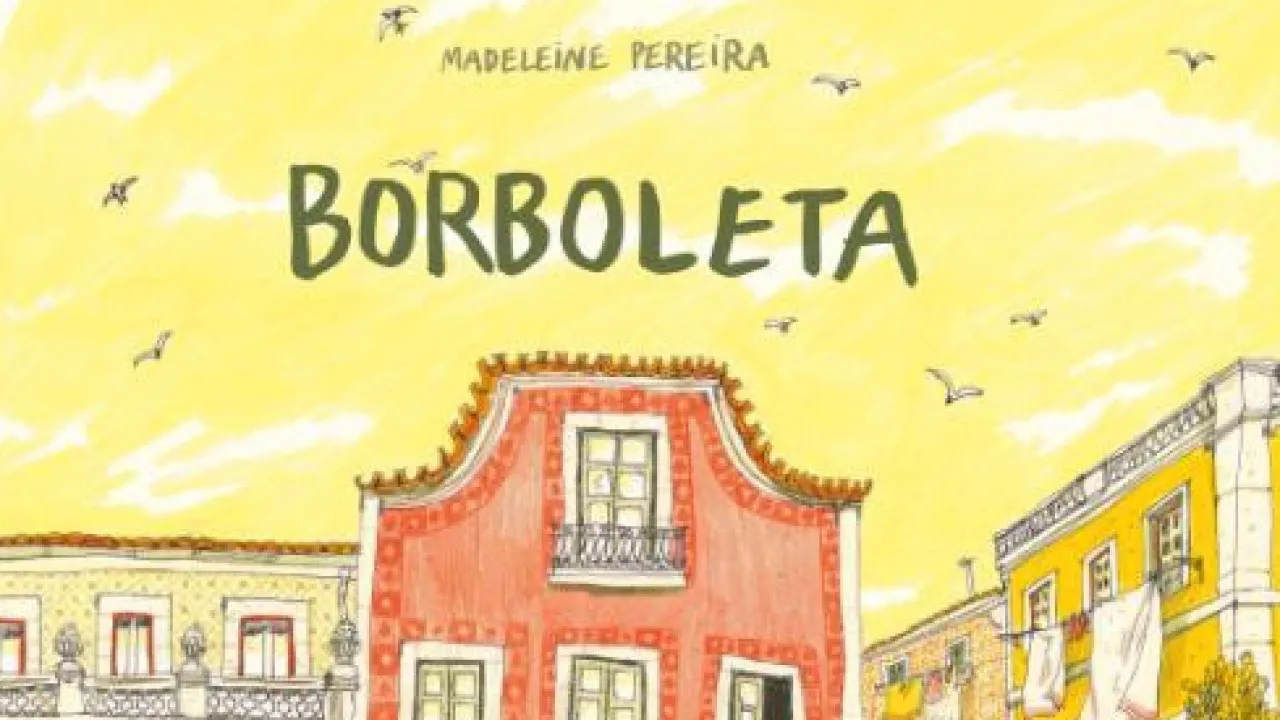
Madeleine Pereira, born in 1997 to a Portuguese father and a Franco-Brazilian mother in France, has always been intrigued by her Portuguese roots. Despite living and working in France, her knowledge of Portuguese history was limited to what she learned in school.
In her work “Borboleta,” which blends biography, autobiography, and fiction, Pereira recounts how her paternal grandmother, a concierge in Paris, introduced her to topics such as Salazar, the dictatorship in Portugal, and the migration decision. In school, she became aware of the Portuguese community and experienced prejudice due to her emigrant background and foreign surname.
These themes are explored in the opening pages of “Borboleta,” where Pereira depicts herself at different stages of life—childhood, adolescence, and adulthood—while attempting to persuade her father to share their family history for a comic book project.
“I visit Portugal every two years to see my family. I’m deeply connected, but I don’t fully understand my heritage. (…) Initially, I wanted to write about others who fled Portugal between ages 10 and 18, but then I pondered how to connect these stories. It seemed best to include myself,” she explained in an interview from Angoulême, her place of residence.
With a father reluctant to disclose the past, Pereira found answers through friends and an aunt, incorporating five stories of Portuguese emigrants from the 1960s and 1970s into her graphic narrative.
“Borboleta” portrays the repression of the Estado Novo regime, the fear among youths of being conscripted into the Colonial War, and the societal norms under an authoritarian regime.
To accurately recreate the visuals shared by her interviewees, such as landscapes, buildings, and interiors, Pereira used family photographs, materials from the Museu do Aljube in Lisbon, archival footage from RTP, and period television series.
Rendered in colored pencils and black pen, “Borboleta” has successfully brought her closer to Portugal and her family.
“In Portugal, I feel French, and in France, everyone makes me feel Portuguese. (…) I long to be Portuguese when I’m there to avoid feeling like a tourist. In France, I value my Portuguese origins,” she emphasized.
The title “Borboleta” relates to an omitted anecdote associated with the 2016 European football final, where Portugal triumphed over France.
“I was at the stadium with my father and sisters, in the Portuguese section, when Cristiano Ronaldo got injured and a butterfly landed on his face. A man next to me said it would bring luck, and Portugal won. I eventually dropped the story but kept the title. Some view the butterfly as symbolic in the book,” she recounted.
Pereira is scheduled to be in Portugal this week to present “Borboleta” on Thursday at the festival A Arte de Ser Migrante in Lisbon, and on Saturday at FNAC Colombo in the capital. In May, she will attend the Maia Comics Festival in Porto.




